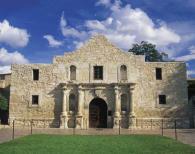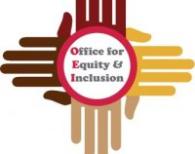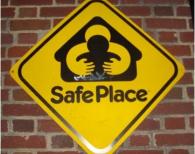This is a background piece on the meaning of a "hate crime" in the five-part series published by our public media partners at Fronteras.
Defining Hate Crimes
By Jude Joffe-Block
PHOENIX — This week we launch our five-part Fronteras Desk series, The Search For Tolerance. Five reporters in five cities checked on the ways that communities are trying to prevent hate crimes. The stories air on several public radio stations in the Southwest this week.
But as communities work to prevent hate, a question often arises when some form of harassment or discrimination does occur: Was that a hate crime?
During the last few decades, the vast majority of states have added hate crime laws to their books. These statutes allow longer criminal sentences if there is evidence that a crime was motivated by bias.
At a recent town meeting in the Phoenix suburb of Gilbert, concerned residents and the police chief entered into a dialogue about the legal definition of a hate crime.
The Search For Tolerance

This is the fifth and final piece of a five-part series published by our public media partneras at Fronteras. Listen to the accompanying radio piece.
By Adrian Florido
Hate Crimes in the Alamo City
SAN ANTONIO, Texas — San Antonio is known as a Mexican-American city. Yet it’s also home to a small but vibrant South Asian community, including Muslims and Sikh religious followers.

This is the fourth in a five-part series published by our public media partners at Fronteras. Listen to the accompanying radio piece.
New Mexico School Seeks to Serve Black Students
By Elaine Baumgartel
ALBUQUERQUE, N.M. — New Mexico often touts its tri-cultural diversity: a white minority population, a Hispanic majority and nearly two dozen Native American tribes.
But the African-American community there is teenie, almost invisible. That makes it more difficult for black students at the University of New Mexico, where four out of five African-American men don’t graduate.
The Fuller family moved their six children to Albuquerque to take advantage of New Mexico’s in-state scholarship programs. Jason Fuller left all of his high school friends behind in his hometown of Detroit, a city that’s more than three-quarters African-American. His new home is a dusty, sprawling city in the middle Rio Grande Valley, where African-Americans make up just 3 percent of the population

This is the third in a five-part series published by our public media partneras at Fronteras. Listen to the accompanying radio piece.
By Adrian Florido
LGBT Group Builds Support In Southern Arizona
TUCSON, Ariz. — In Tucson, Ariz., a nonprofit group is working to reduce hate and bias against the LGBT community. It’s called Wingspan and it is doing so through education; training even government organizations about tolerance within the ranks.
Inside the airy rooms of Studio One, a group of artists is meeting on a late Saturday afternoon. The logistics are a little daunting but they have no shortage of volunteers. They are preparing for a Latino gay pride festival.
The circle of artists brings together burlesque performers, photographers, event planners, singers, dancers and poets.